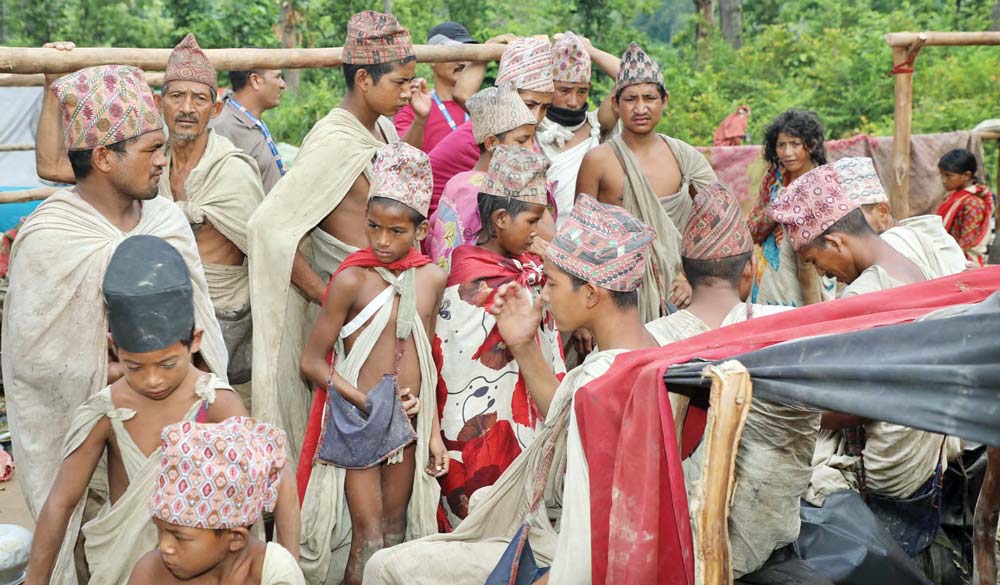
SATV, KATHMANDU,Aug. 19: The Karnali Provincial government plans to build a ‘Raute Corridor’ to support the endangered Raute community people, who have traditionally led a nomadic life across Karnali's hilly districts. The corridor will identify key settlement areas of the Raute community and provide them with temporary housing, education, healthcare, security, and other vital services.
According to Karnali's Ministry of Social Development, this year's provincial budget includes a plan to develop frequently travelled areas into a Raute Corridor. It will cover roads along the riverbank and streams in Kalekanda, Achham, Dailkeh, Jajarkot, Surkhet, and Salyan, where Rautes are commonly seen.
Minister for Social Development Ghanshyam Bhandari said that, due to the Rautes' mobility and temporary settlements, the government intends to build this corridor within the current fiscal year. Over the past decade, the community has mainly resided in these districts. The corridor aims to support their lifestyle and improve their safety.
The government has already started studying the community's current settlements and preparing their profiles. While social security allowances have eased their lives, misuse of these benefits has been reported.
To address this, the government plans to promote the marketing of wooden crafts, restore forest cover through reforestation, prioritise their traditional food, and coordinate with the Ministry of Industry, Tourism, Forest, and Environment to ensure their safety.
Minister Bhandari also said that temporary housing will be arranged wherever the Rautes stay, with the local level expected to assist. The corridor will also ensure access to school and health centres for the Raute children and support their traditional farming. In the initial phase, data about the Raute community is being collected and studied, with a current population of 135; their profile has already been prepared.
The proposal reflects commitments at both national and international levels to protect the human rights of the Raute community and address their issues. The government believes the corridor will boost tourism and promote research.
Once the corridor is built, it is expected to increase tourism prospects in the area. Currently, the Raute community mainly lives in Jhupra Khola, Lekbesi Municipality–10, Surkhet.



















